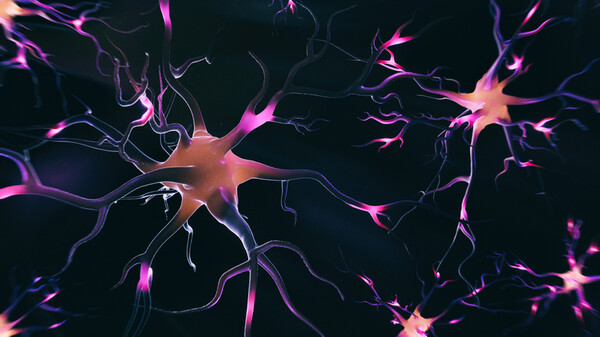CHA University Bundang Medical Center (CBMC) said on Monday that its researchers proved the safety and effectiveness of dopamine neural precursor cells derived from fetal mesenchymal stem cells transplanted into patients with Parkinson's disease "for the first time in the world."

Parkinson's disease is caused by the loss of nerve cells that secrete a neurotransmitter called dopamine in the midbrain.
Cell replacement therapy makes dopamine nerve precursor cells from stem cells derived from the midbrain of the fetus. Then, dopamine nerve precursor cells can be transplanted into the patient's brain.
The research team, led by Professor Kim Joo-pyung of Neurosurgery at CBMC, administered three different doses of cells to 15 patients accompanied by a 12-month follow-up under the age of 70.
The study revealed a motor ability recovery effect of 11.6 percent in the low-dose group, 26 percent in the medium-dose group, and 40 percent in the high-dose group based on the Unified Parkinson's Disease Rating Scale (UPDRS). Furthermore, there were no side effects such as bleeding, immune rejection, inflammation, and tumor formation.
Since 2005, Professor Moon Ji-sook of the Department of Biotechnology at CHA University has succeeded in proliferating dopamine nerve cells derived from the midbrain of the fetus through joint research with Professors in Germany and the U.S.
Based on the results of this study, CHA Biotech mass-produced dopamine precursor cells, and Professor Kim’s team at CBMC confirmed the therapeutic effect by applying the treatment to patients.
In particular, a 65-year-old woman suffering from mid-stage Parkinson's disease received the world's first stem cell transplant in 2013 and is now able to perform routine daily activities with an improvement in overall motor function, such as using public transportation.
“It is very encouraging that we were able to confirm the safety and efficacy of dopamine nerve progenitor cell transplantation through PET-CT exams, and also observe good results in inhibiting the progression of Parkinson's disease in long-term follow-up studies for more than 10 years," Professor Kim said.
"We will do our best to accelerate the development of Parkinson's disease stem cell therapeutics using dopamine cells isolated from fetal tissue and mass-produced."
The study was published in the latest issue of the international journal Movement Disorders.
Related articles
- Algorithm to detect CNS dysfunction through 'eyes' of Parkinson's patients
- What Lou Gehrig's and Parkinson's have in common
- Parkinson's disease patients call for a resupply of Madopar
- ‘DBS is a procedure that gives better lives to people with Parkinson's disease’
- IBS maps brain circuits using non-invasive beam projector
- S.Biomedics scores U.S. patent for its Parkinson's cell therapy technology

